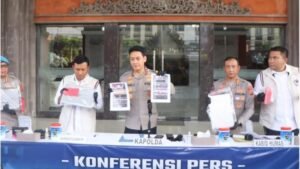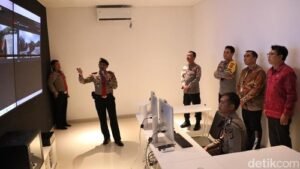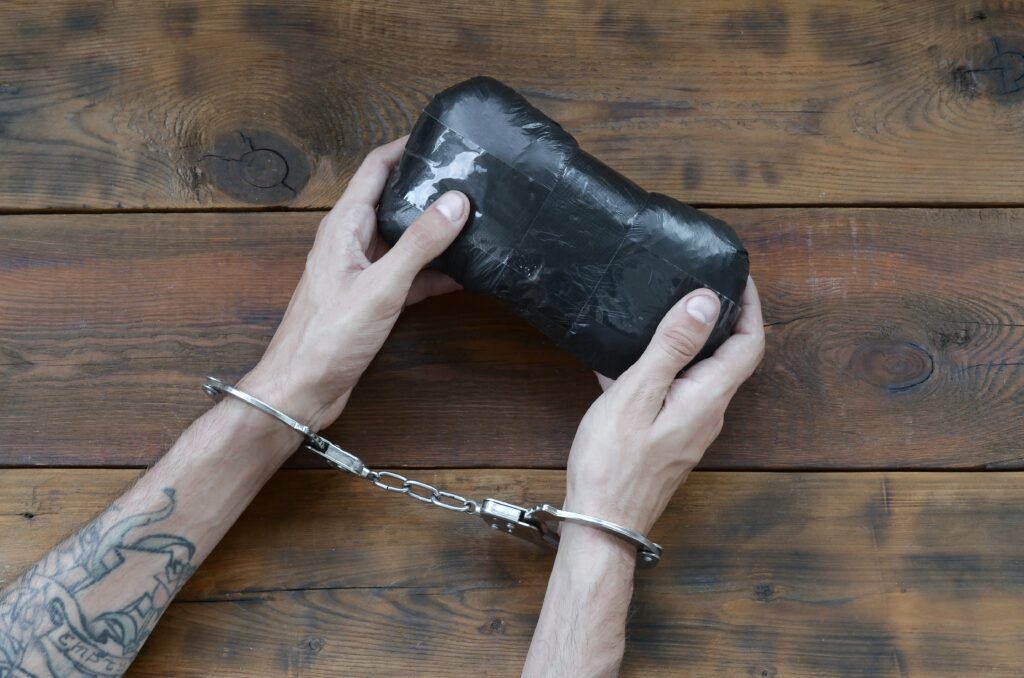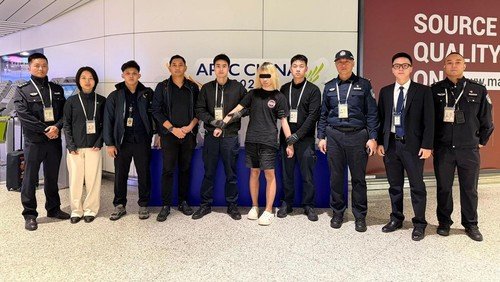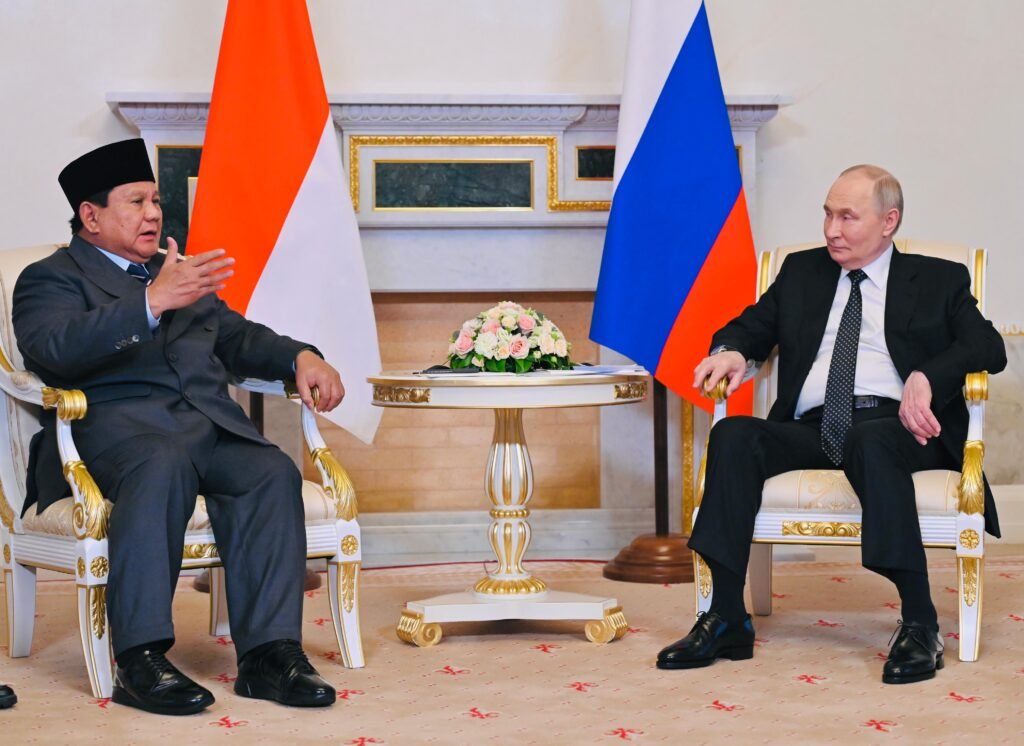
Indonesian President Prabowo Subianto met with Russian President Vladimir Putin on Thursday in the Russian city of St Petersburg, where both leaders signed a new declaration of strategic partnership, formalizing plans to expand cooperation in areas including defence, trade, and energy.
The agreement signals a deepening relationship between Indonesia and Russia at a time when Moscow is actively seeking closer ties with countries in the Global South—a term that broadly refers to developing nations in Asia, Africa, and Latin America—amid ongoing Western sanctions and diplomatic pressure over its invasion of Ukraine.
The move is already drawing concern from countries such as Australia, which view Russia’s increasing influence in the region with caution.
€2 billion investment fund created
As part of the visit, Indonesia’s sovereign wealth fund Danantara Indonesia—a government-run investment body tasked with boosting economic growth—signed a deal with the Russian Direct Investment Fund (RDIF) to create a joint investment fund worth €2 billion (around US$2.29 billion). The signing was witnessed by both Prabowo and Putin.
The new fund is expected to finance infrastructure and energy projects in both countries, although specific sectors were not detailed in the announcement.
BRICS membership welcomed
During their meeting at the Constantine Palace, Putin welcomed Indonesia’s recent entry into BRICS, a coalition of major emerging economies originally consisting of Brazil, Russia, India, China, and South Africa. BRICS, which aims to provide an alternative to Western-dominated financial institutions like the World Bank and IMF, is growing in influence as more countries join.
Putin said he was confident that Indonesia would make a “significant contribution” to the group, while Prabowo expressed gratitude for Russia’s support in the membership process and stated that bilateral relations were on a strong upward trajectory.
Indonesia eyes nuclear energy—and Russian tech
Russia has proposed expanding its cooperation with Indonesia in defence, energy, and nuclear technology. Indonesia, which currently relies heavily on coal to power its economy, plans to build its first nuclear power plant by 2032. The facility is expected to generate 500 megawatts of electricity, with several international players—including Russia’s Rosatom, China’s CNNC, and U.S.-based NuScale—already expressing interest in the project.
While Prabowo’s administration is pushing to meet rising energy demands without increasing carbon emissions, he has also made it clear that Indonesia will continue its non-aligned foreign policy, meaning the country will not side exclusively with any global power bloc, nor join any military alliance.
A “great friend” in Moscow
This is Prabowo’s second visit to Russia in less than a year. When he traveled to Moscow in August 2024 as defence minister and president-elect, he described Russia as a “great friend” and called for closer collaboration in defence, education, and energy.
In recent months, military ties have also quietly advanced. Russia and Indonesia held their first-ever joint naval drills in the Java Sea in November 2024—an unusual move for a country that generally avoids military alignment.
Balancing act between global powers
While China remains Indonesia’s largest trading partner, the Prabowo government recently announced new trade concessions with the United States in a bid to offset the impact of U.S. tariffs. Jakarta is seeking to walk a careful line between the world’s major powers, avoiding entanglement while maximizing the benefits of economic cooperation.
Russia, for its part, has commended Indonesia’s neutral stance on the war in Ukraine, calling it “balanced” in contrast to more critical positions taken by Western governments.
The evolving partnership comes as Indonesia seeks to assert a more independent role on the global stage—engaging simultaneously with Russia, China, and the United States while maintaining its long-standing principle of non-alignment.





